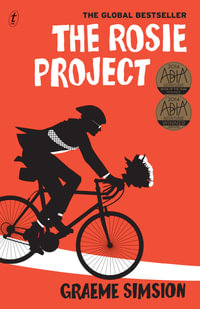One of the great works of European short fiction, by turns funny, reflective and profound.
Ranging from one-page fantasies to novella-length studies of everyday existence, The Walk reveals the irresistible genius of one of the twentieth century's greatest writers. Under-appreciated even in his own lifetime, Robert Walser has nonetheless been recognised by such writers as W.G. Sebald, Susan Sontag, Franz Kafka, Herman Hesse and J.M. Coetzee.
Like Kafka and Sebald, Walser wrote about the solitude and unease of human existence. Honest, wry and idiosyncratic, his stories are snapshots of the lives great artists, poor young men, beautiful women and talking animals alike. Ranging from the realist to the allegorical, the short fiction collected in this volume demonstrates Walser's uncanny ability to capture both life's strangeness and its small joys.
Industry Reviews
A clairvoyant of the small...Walser has been my constant companion -- W. G. Sebald
If he had hundred thousand readers, the world would be a better place -- Hermann Hesse, winner of the Nobel Prize in Literature
"Kleist in Thun" and "Helbling's Story" show him at his dazzling best -- J.M. Coetzee, winner of the Nobel Prize in Literature
A truly wonderful, heartbreaking writer -- Susan Sontag
An essential writer of our time -- Elias Canetti, winner of the Nobel Prize in Literature
The future will see Walser as a true literary representative of our age -- Max Brod
A major twentieth-century prose artist...he sounds like nobody else -- Benjamin Kunkel * New Yorker *
A writer of considerable wit, talent and originality * New York Times *
His perception extended past sensory limits. He elevated the significance of the everyday * Bookslut *
One of the greatest German-language writers of the twentieth century -- Juan Jose Saer
Walser was one of those individuals who stand at a slight angle to the world: first impressions suggest words like quirky, or surreal. But, if anything, his art was a beautifully sane challenge to the systematic assault on the subjective and quotidian that was already grinding away when he entered the madhouse. In an age that found it possible to diagnose the inner life as a sticky mass of tics and neuroses, Walser became a polite but stubborn champion of an everyday life in which psyche may play a central role, but pathology is not necessarily a given. -- John Burnside
The stories of a man in love with the world, but unable to take part in it * Economist Intelligent Life *
A kind of grown-up fairy tale. His style is both direct and colloquial yet also poetic in its simplicity. -- Lesley McDowell * Sunday Herald *
Walser is an original. The book's centrepiece, "Kleist in Thun" is at once a deft literary portrait, a vivid piece of nature writing, and an autobiographical insight into Robert Walser's own mental fragility. All in all, it is as beautiful and moving a story as I have ever read. * Independent on Sunday *
Walser left a curiously brilliant and utterly original corpus of work, whose wry surrealism is reminiscent of Kafka, Beckett and indeed John Lennon ... a masterpiece -- Alfred Hickling * Guardian *
























